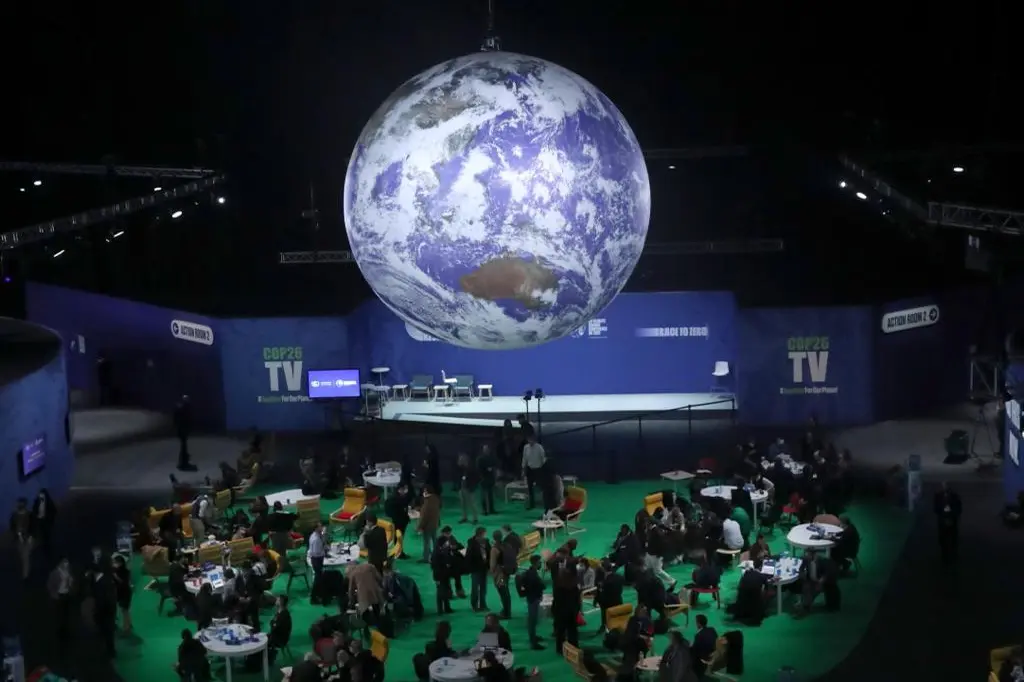PHOTO
On any unbiased assessment, the first week of COP26 was a pretty good start to the gathering charged with saving the world.
The geopolitical spats — largely it seems instigated by the US and directed at their global rival China — should not detract from some real progress on the granular details of combating climate change.
There have been notable successes, like the commitment by 105 nations to halt desertification and commence large-scale reforestation in an effort to mitigate CO2 emissions and protect biodiversity — a move that Saudi Arabia can legitimately claim to have pioneered via the Saudi Green Initiative. It was backed with a $19bn fund by sovereign and private sector financiers.
There was also progress on agreeing deadlines for net zero emissions, with India the most notable with its pledge to achieve carbon neutrality by 2070, though the environmental activists were still not satisfied with that date.
But there are still significant hurdles to overcome. Sideline conversations with Saudi officials at the event highlighted four main areas that still have to be decided by the negotiators who now take center stage as the world leaders depart from Glasgow.
The first is coal. Some of the biggest energy consumers in the world, such as China and India, as well as some of the biggest coal producers, such as Russia and Australia, are not yet prepared to kick the coal habit, and have been given fresh impetus to their stance by the energy crunch facing much of the western world.
They appear instead to be relying on technological advances that could make coal production cleaner while keeping the benefits of such a rich power source — a position that could equally apply to oil.
There is also much work to do on Article 6 of the Paris Agreement, which deals with global carbon markets. Some energy experts see this as a key factor to help the world reach net zero, but there is a long way to go in this complex issue. In a nutshell, the world has not yet been able to construct an effective mechanism for offsetting carbon as they strive toward net zero. It is a big stumbling block.
Third, there is the delicate matter of fossil fuel subsidies. This is often regarded as an issue for the Middle East and other meeting markets, but in fact many western governments also give their citizens incentives to continue using coal, gas and oil in their energy consumption patterns.
Some progress was made on this matter at the Italian G20 and Saudi negotiators think there could be a formula for a compromise agreement on this highly political matter in Glasgow.
Finally, there is perhaps the most intractable issue of all. The Paris Agreement set a goal of keeping global temperature rises below 2 degrees Celsius compared with pre-industrial levels, but all the forecasts suggest that will be a tough target to hit.
Some countries — notably Europeans — want to double down on that and set a new ambition of 1.5 degrees. There is no denying the global will to achieve meaningful targets on global warming, but there has to be an element of practicality about this matter.
Saudi Arabia believes that, rather than setting ambitious but impractical targets, the full panoply of techniques to combat climate change should be deployed, as the framework of the Circular Carbon Economy lays out.
An agreement on the final declaration when it comes in a week’s time is possible, there is no doubting that. But to tackle the urgent issues of climate change and global warning, it has to be a meaningful and implementable deal, rather than just a diplomatic exercise in compromise and fudge.
• Frank Kane is an award-winning business journalist based in Dubai. Twitter: @frankkanedubai
Copyright: Arab News © 2021 All rights reserved. Provided by SyndiGate Media Inc. (Syndigate.info).





















